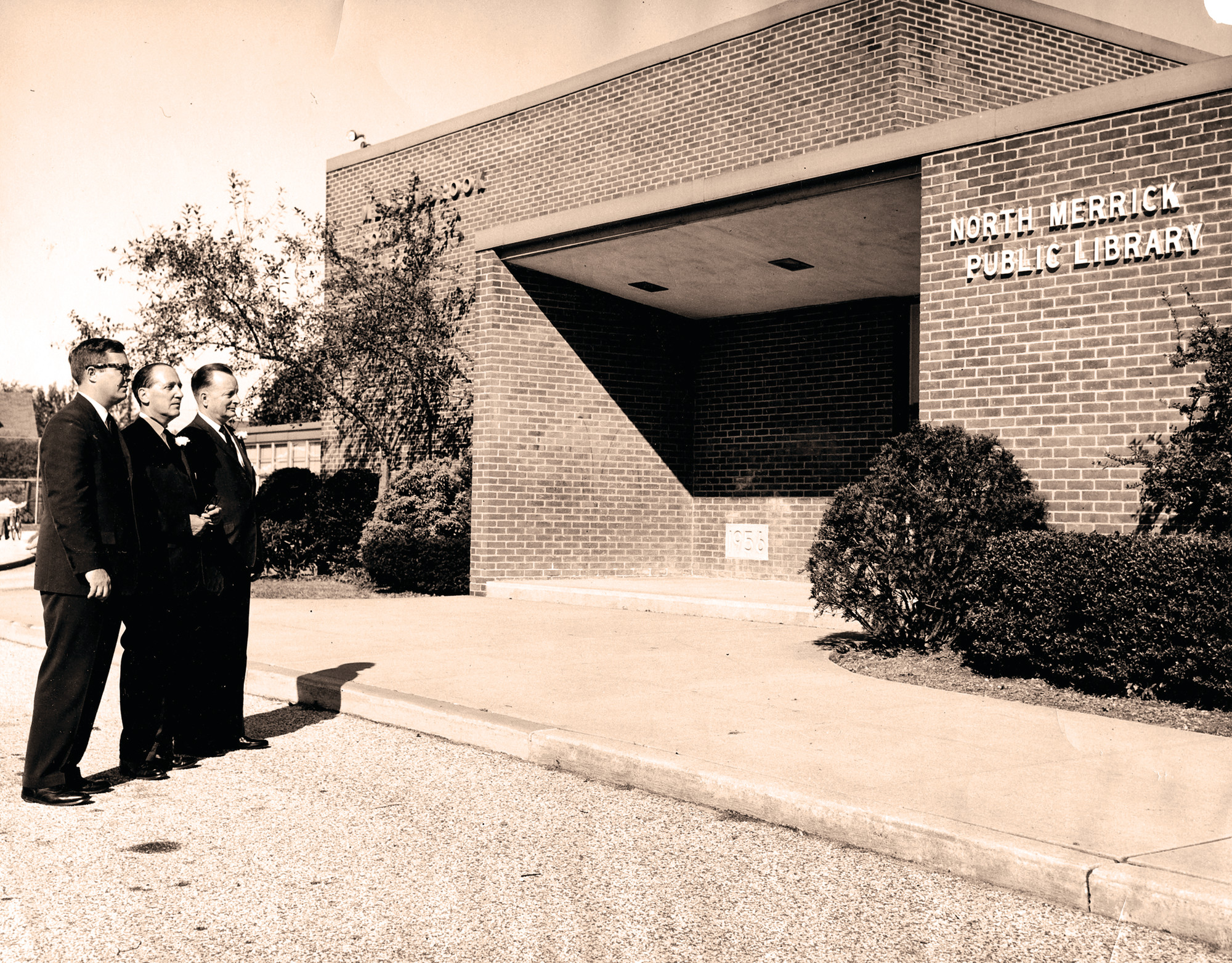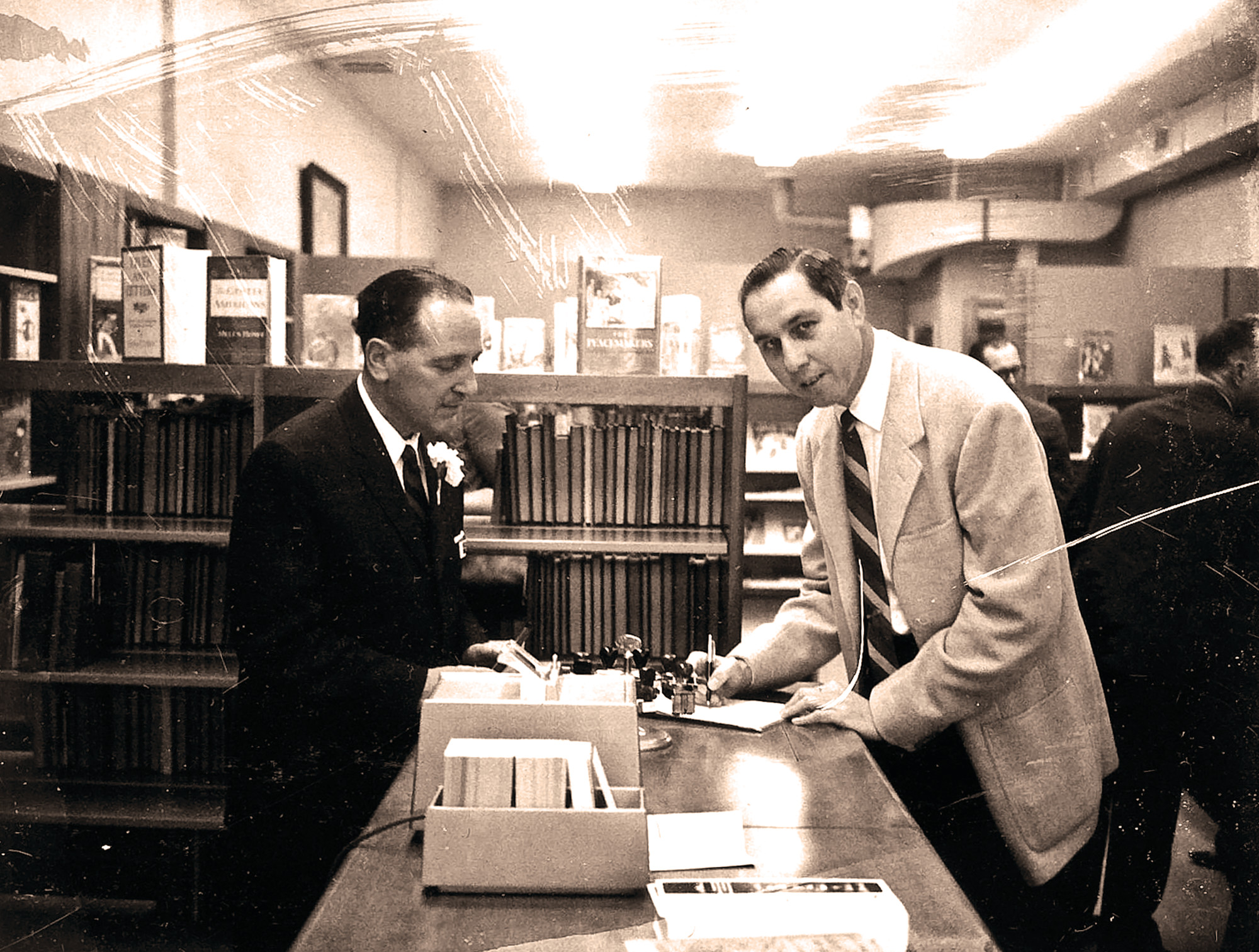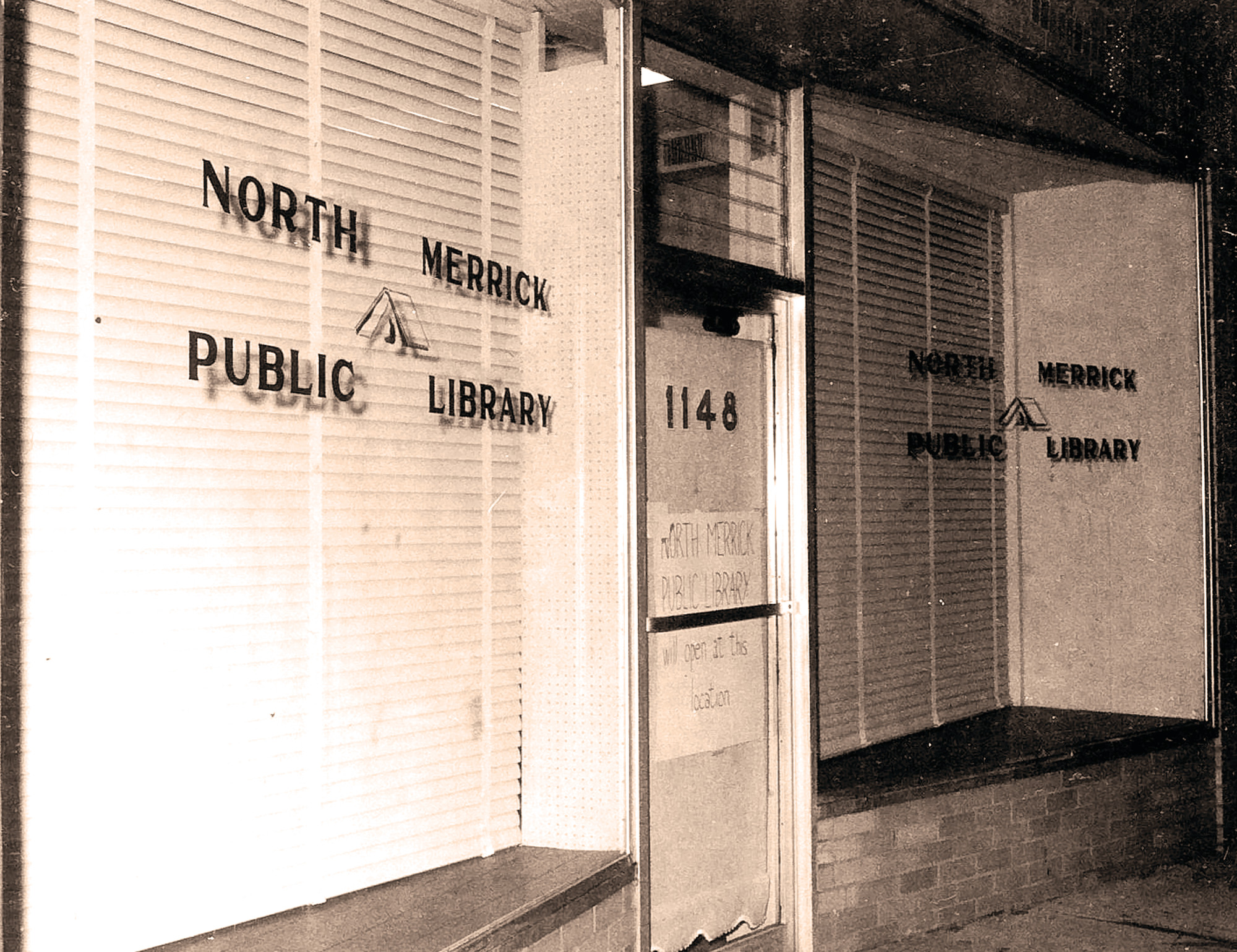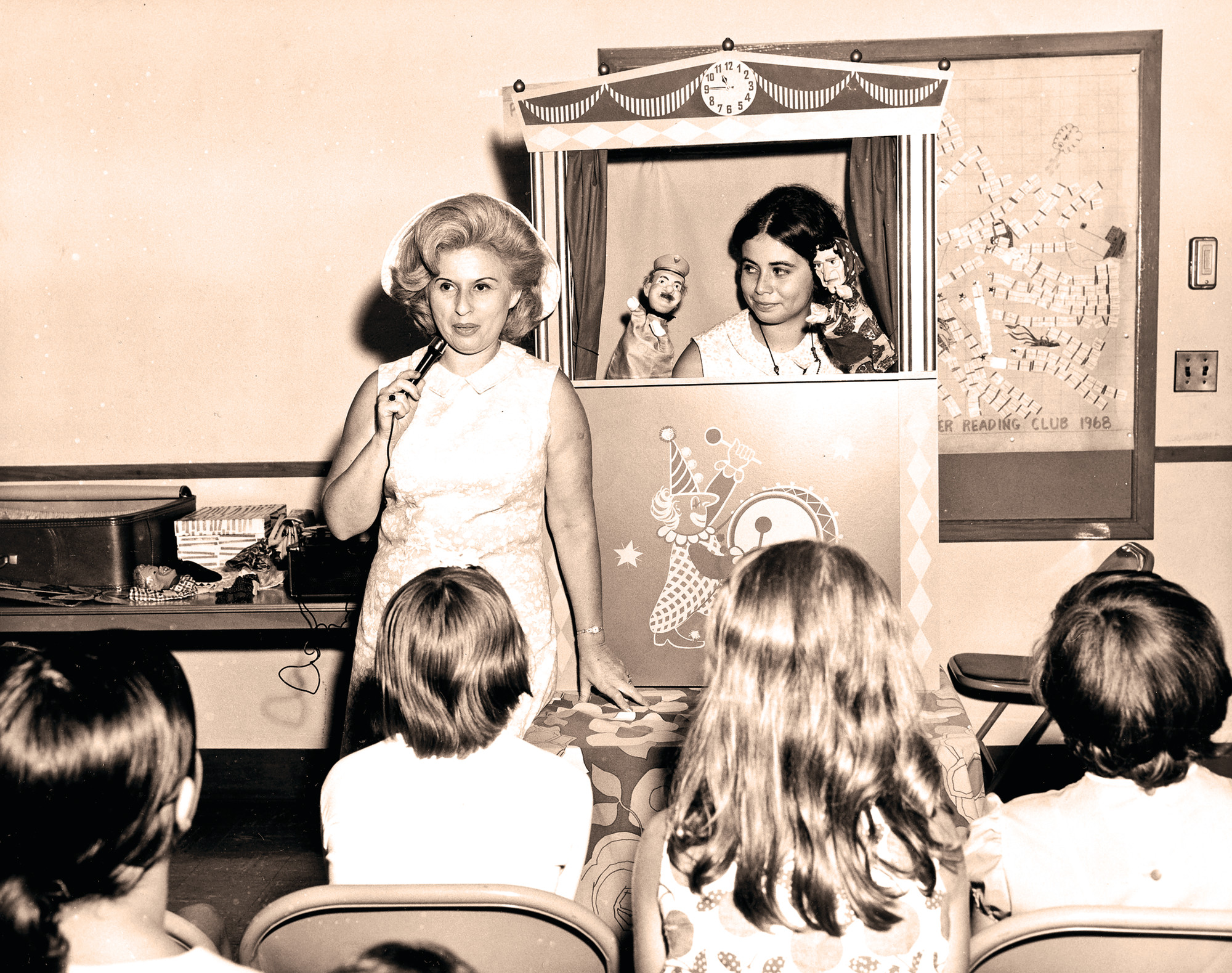North Merrick Library marks 50 years
Oral history recalls library’s past
The third time was the charm in North Merrick.
That’s how many tries it took community activists to rally public opinion behind a referendum to found a neighborhood library. The measure failed twice in the 1950s before finally passing — by a margin of nearly 3 to 1 — on Nov. 21, 1964.
Fifty years later, the library is a local staple, offering a world of information and educational and recreational services to residents of all backgrounds, as its founders envisioned. Few North Merrick residents could imagine their community without a library to call its own.
The library opened its doors on Dec. 5, 1965, in a storefront at 1148 Merrick Ave., where Jerus Cleaners now stands. It moved into its current location, the former Meadowbrook School, on Oct. 3, 1966. Current library Director Tom Witt said the facility would take advantage of its multiple anniversary dates by organizing activities and events through 2016, culminating in a celebration on Oct. 3 that year marking 50 years in the library’s home at 1260 Meadowbrook Road.
In November, the library began an examination of its first five decades by filming interviews with residents and staff members for an oral history project. (A library news release stated that those who wish to participate could schedule interviews by emailing anniversary@northmerricklibrary.org.)
Lawrence Garfinkel, a longtime Merokean, president of the Historical Society of the Merricks and an adjunct professor of media arts at LIU Post, knows the value of such endeavors. In the mid-1970s — the country’s bicentennial had made history suddenly popular — he helped lead an oral history project that recorded and transcribed interviews with notable Merokeans and donated the archive to the Merrick Library.
“People were of the age then when they could still recall before North Merrick had a school district, it had a lot more fields, when you could still find Indian remains if you looked for them,” Garfinkel said.
“There’s no substitute for oral history,” he continued. “History is not what happened, it’s what people say happened. Nothing is better than opening up a microphone and letting people tell their stories.”

 47.0°,
Fair
47.0°,
Fair 











